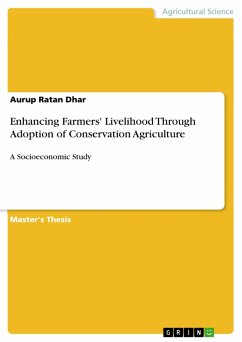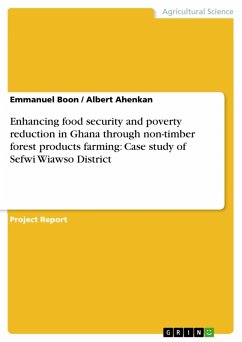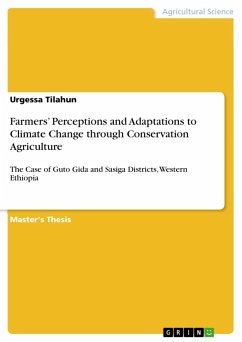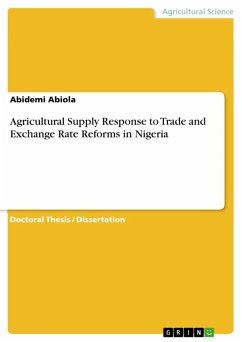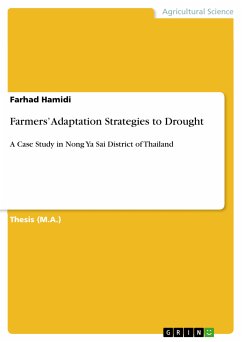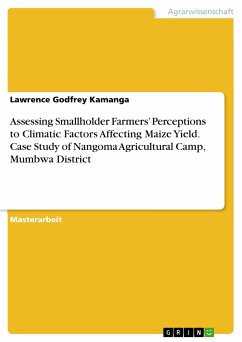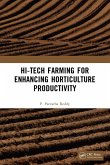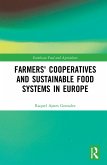Master's Thesis from the year 2016 in the subject Agrarian Studies, Bangladesh Agricultural University, language: English, abstract: The research was conducted to evaluate the impact of practicing conservation agriculture on farmers' livelihood enhancement in two districts of Bangladesh. A total of 120 farmers (20 from focal and 100 from control group) were surveyed from Jamalpur and Bogra districts for collecting necessary data and information. An amalgam of descriptive statistics, mathematical and statistical analyses was used to analyze the data. Bangladesh is a role model for the United Nations to be showcased for its excellent development performance to developing nations. Agriculture is the heart of Bangladesh economy where more than 80% farmers are smallholder having land less than 1.0 hectare. The rural economy constitutes a significant component of the national GDP with agriculture (including crops, livestock, fisheries and forestry) accounting for 17.2%. In order to feed the increasing population of Bangladesh, 'Green Revolution' has emerged in the 1960s and priority was given to produce more food through intensification of land usage. As a result, immediate objectives of more crop production have been achieved and crop production has been increased by manifolds. For a shorter period, Bangladesh has attained self-sufficiency in food production. But long term use of chemical fertilizer and pesticides in conjunction with monoculture of cereal crops without any organic fertilizer result in lack of organic matter content that causes a lot of problems to the soil health. As a result, soil fertility and productivity is decreasing day by day. Since the average cropping intensity is 185% in Bangladesh (BBS, 2014), most farms manage about two (02) crops per year which are mainly rice or vegetables. Soil is interconnected with other natural resources such as air, water, fauna and flora. If the soil is well managed, the effects of agriculture on the environment will be acceptable and vice versa. In this context, introduction of resource conserving agriculture, i.e., conservation agriculture is becoming increasingly important in overcoming the problems of declining agricultural productivity in Bangladesh.
Dieser Download kann aus rechtlichen Gründen nur mit Rechnungsadresse in A, B, BG, CY, CZ, D, DK, EW, E, FIN, F, GR, HR, H, IRL, I, LT, L, LR, M, NL, PL, P, R, S, SLO, SK ausgeliefert werden.

